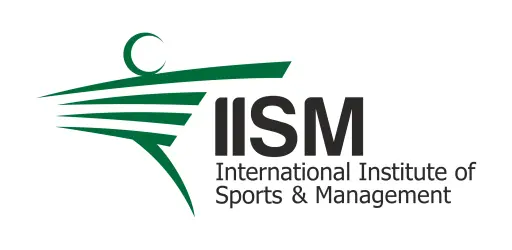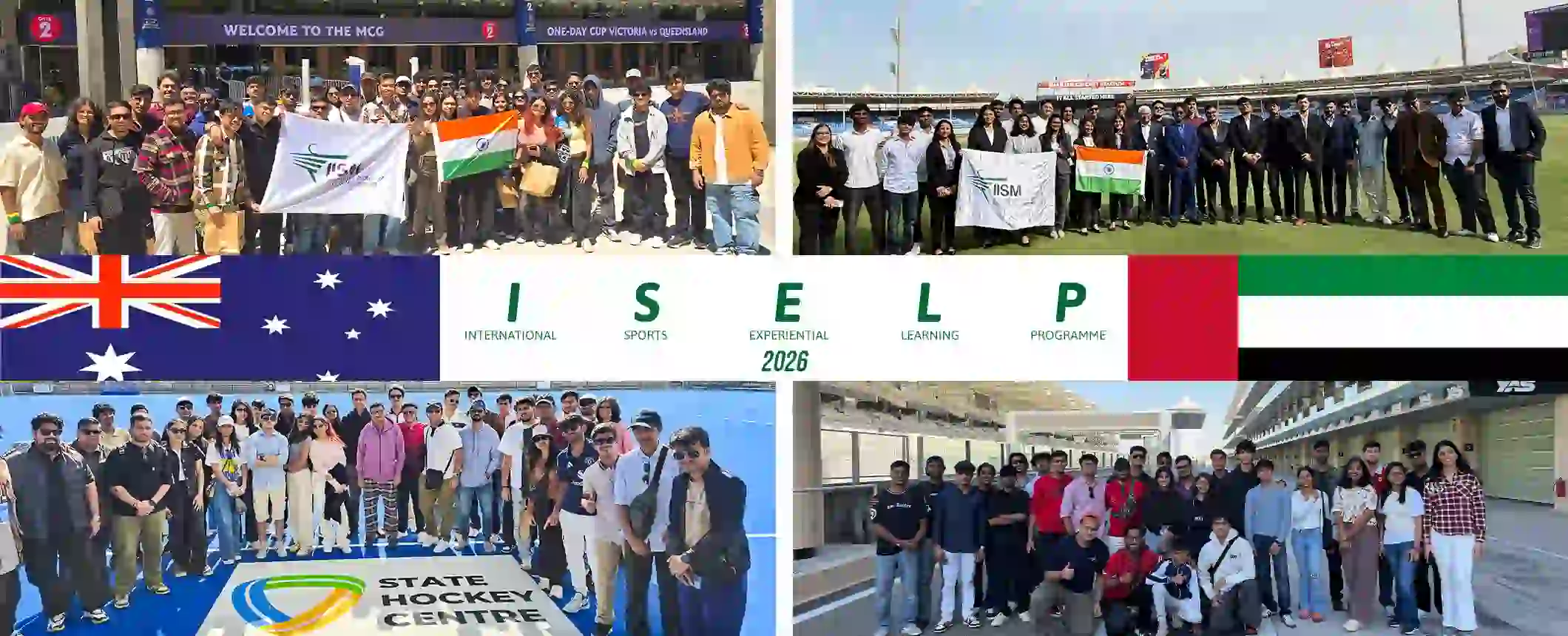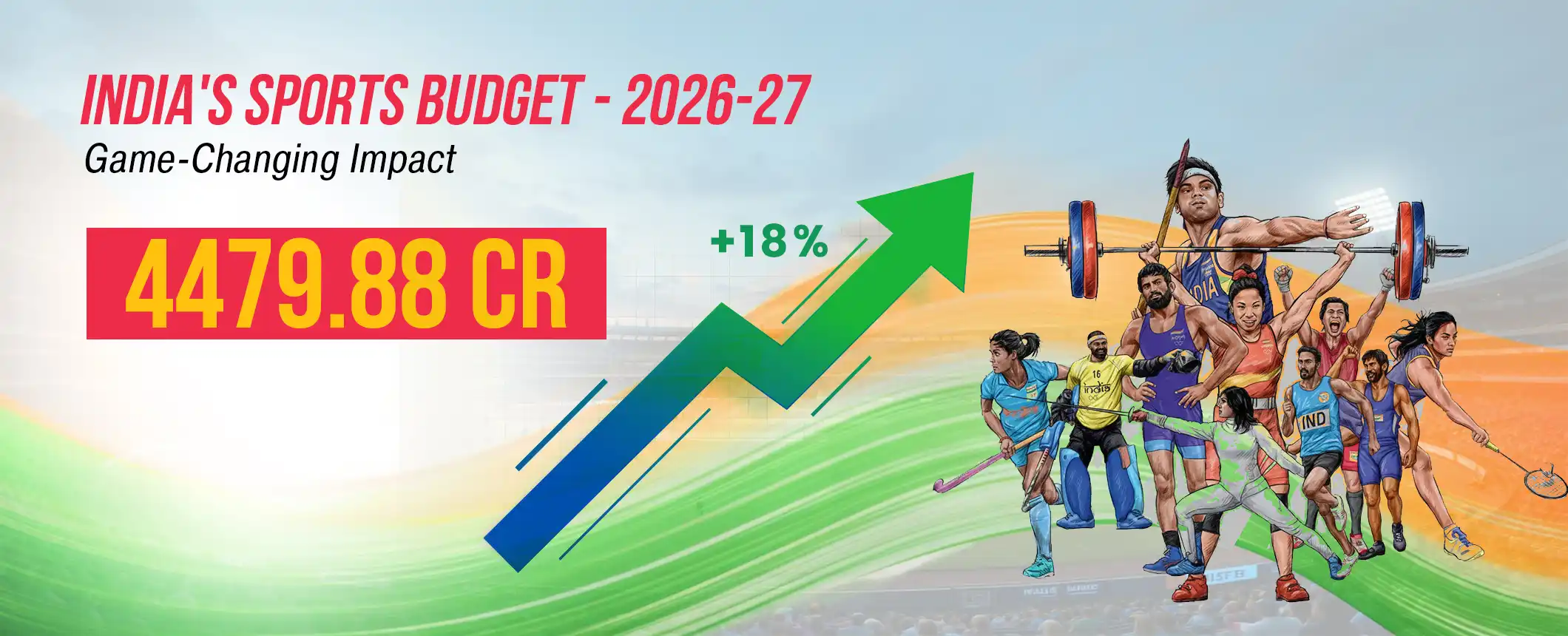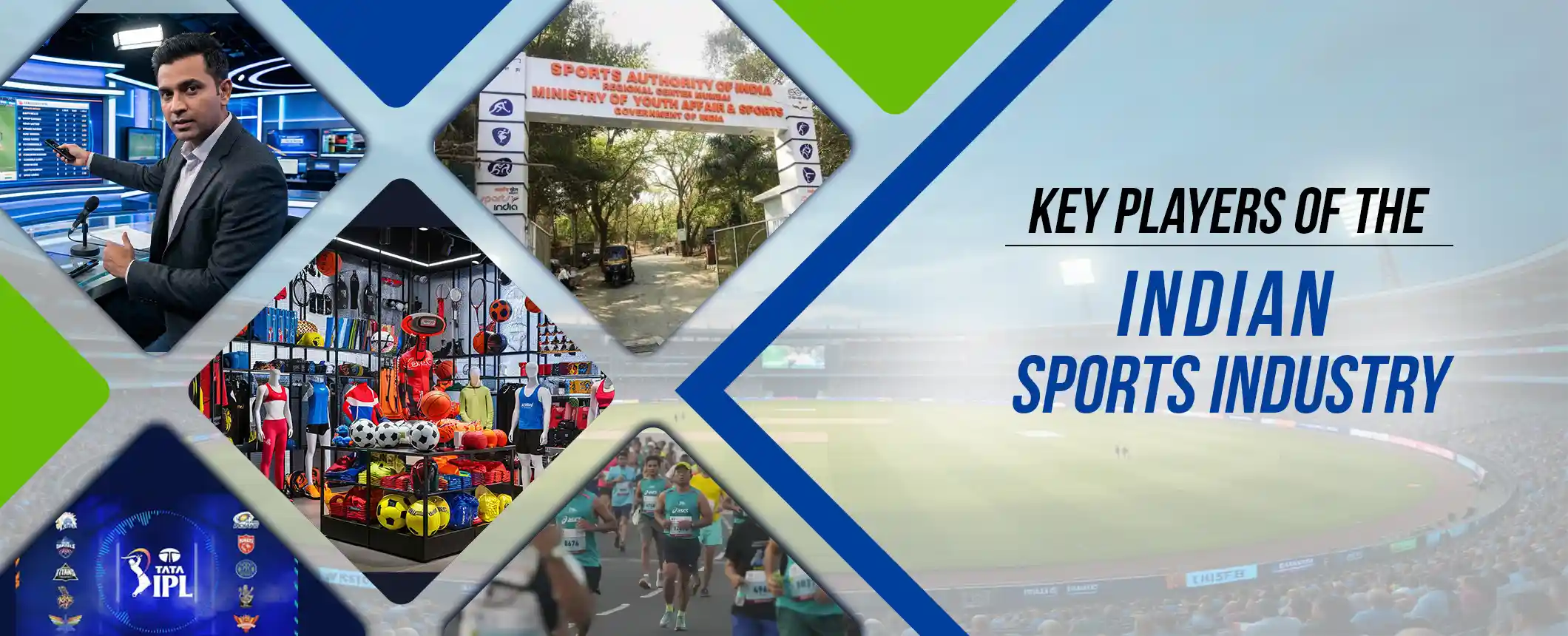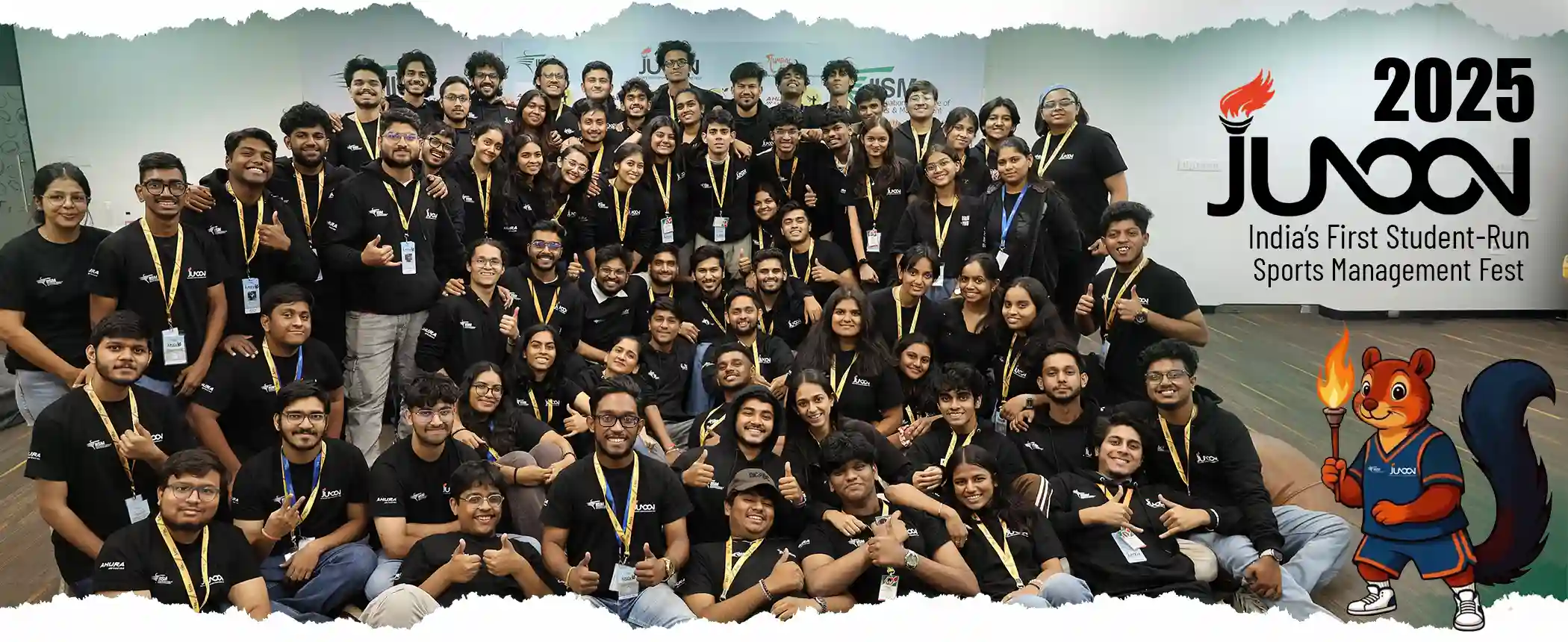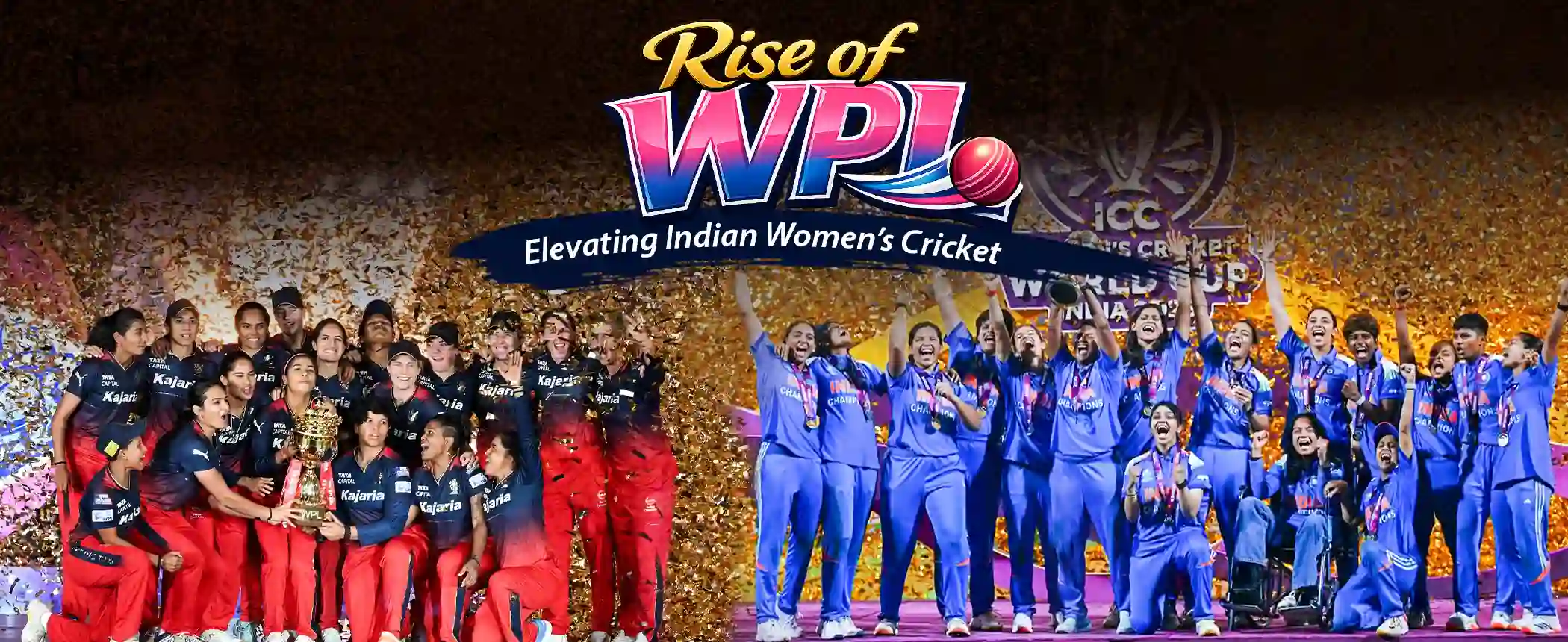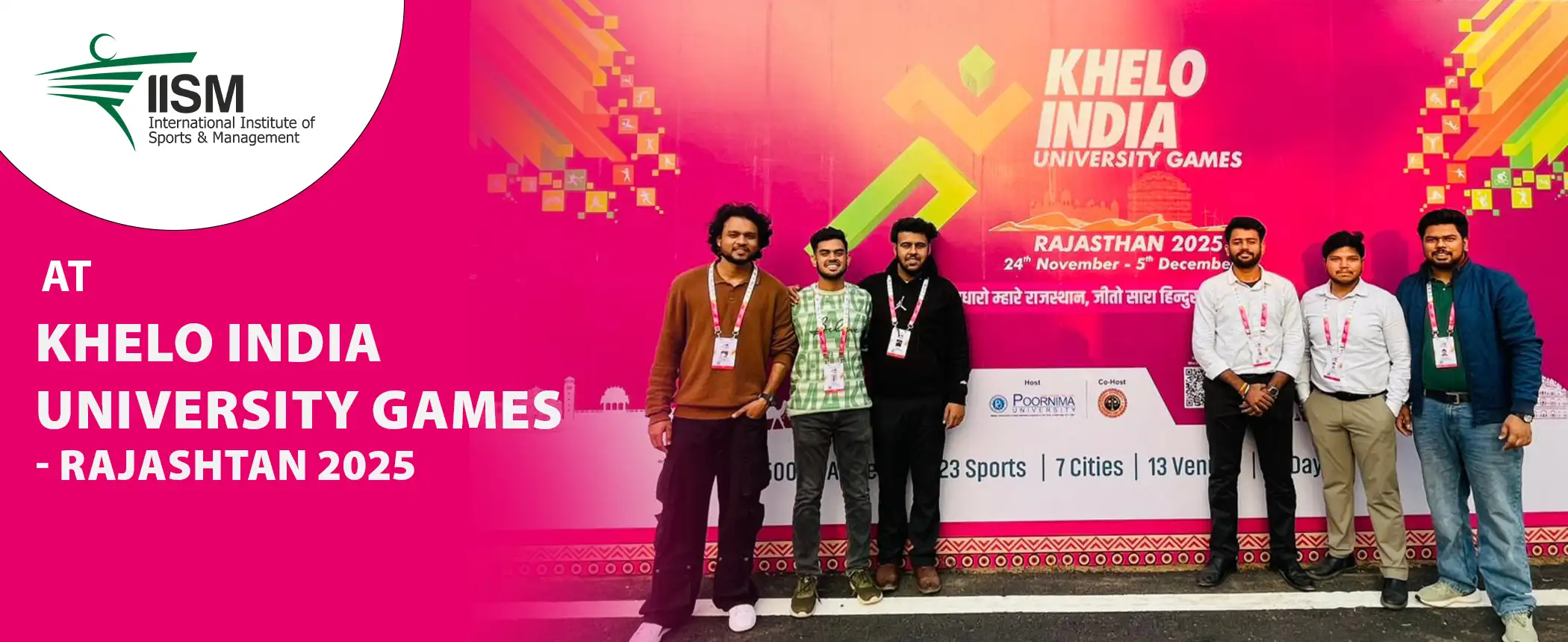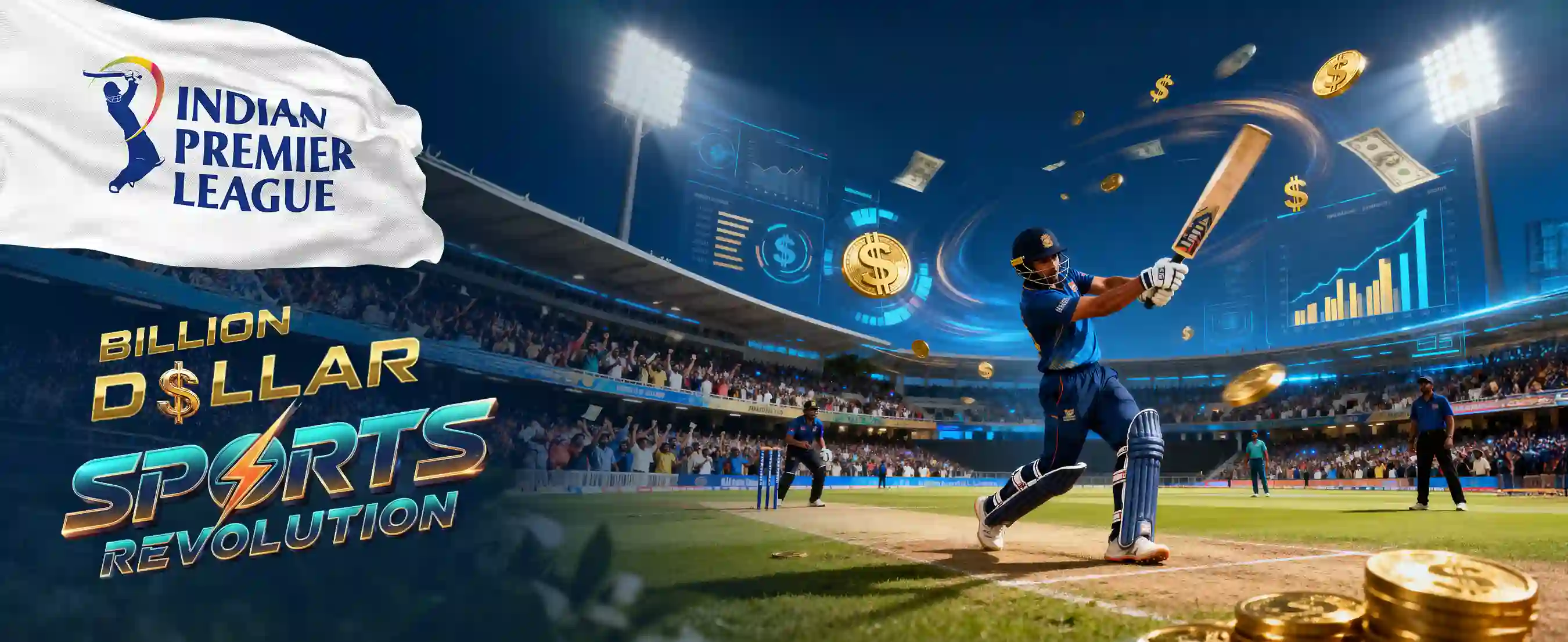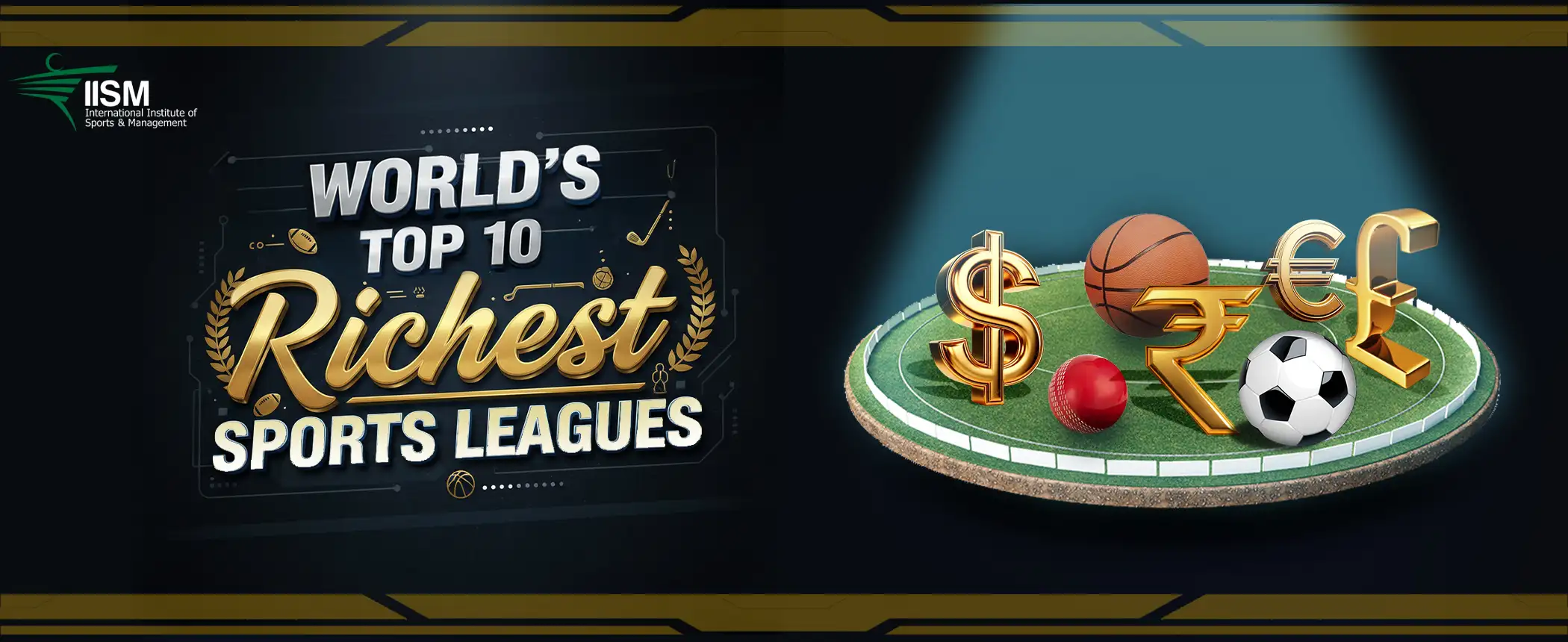Legal Aspects in Sports Management & Sports Law
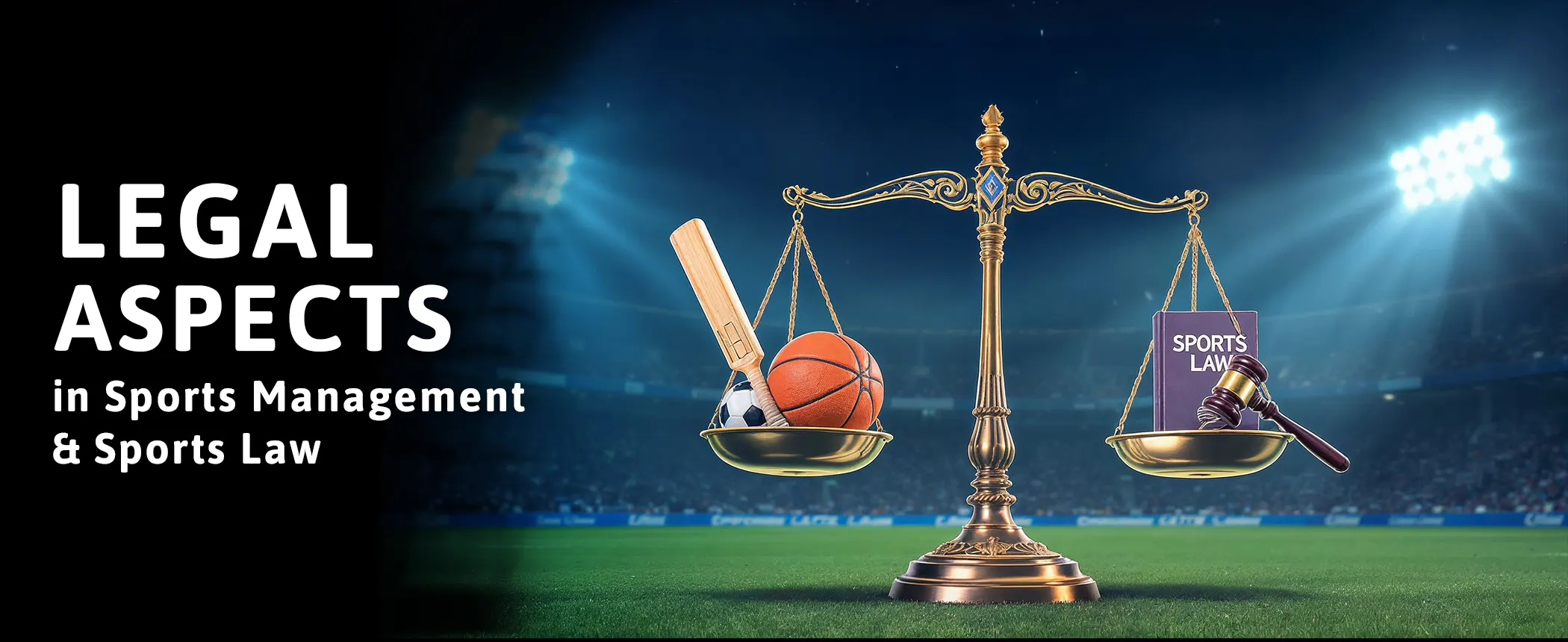
Students considering Sports Management as a career should possess a fundamental understanding of sports law and other legal aspects of business activities in addition to other abilities like strong analytical, research, problem-solving and communication skills. As the sports industry has been fast emerging with a valuation of over a billion-dollars.
Sports and sports-related sectors are always important elements in nation-building in terms of the economy as well as the wellbeing of society. Now the question may arise about the importance of law in sports.
The role of sports law is to ensure safety, equality, fairness and integrity in the athletic competition on and off the field. Sports Management refers to assuming leadership position in managing affairs of the sport. It calls for various compliances and administration of rules and regulations prevailing in sports and sports management.
Various Aspects of Sports Law and Their Implications for Sports Managers
Player Contracts
Sporting league franchises have to be very diligent with player contracts and ensure all particulars of the contract offered to their players are vetted properly.
From the salary amount to the payment terms and schedule, from benefits and perks to contract duration, there can be a dispute on any parameters. That is why both the player and the franchise ensure they are on the same page during the drafting and vetting of the contract by their respective lawyers before they execute the contract.
There is always a start date and end date for player contracts unless they are full-time/retained players. These dates define the duration of the contract.
Sponsorships and Endorsement Agreements
Sponsorships and Endorsement deals often get misinterpreted as the same, but differ majorly. Sponsorships in sports mainly happen for brand visibility with an exchange of a lump-sum of money toward a team, broadcaster, league or a player.
However, players usually sign endorsement deals with brands, unless the brand is willing to do a sponsorship deal, presumably to provide equipment or similar perks with their products.
Both sponsorships and endorsements require contract vetting before execution, as legal issues are bound to happen with regards to players endorsing any similar competitor brand/product in endorsement cases. Meanwhile, sponsors can also face unforeseen circumstances and land in hot waters to withdraw their sponsorship.
For instance, Dream 11 cancelling its sponsorship for the Indian national cricket team after the Online Gaming Bill introduced in 2025 by the Indian Government. There are multiple clauses of termination in these sponsorship and endorsement contracts, if either of the parties breach any conditions or face any controversy.
Media Rights
Broadcasting companies also have to go through multiple steps of contract negotiations and vetting before they can exercise their media rights for a particular league tournament or series.
After media rights are auctioned, the whole contract drafting and vetting process between the sporting federation and the broadcaster begins. The ad slots, slot rates for brands, number of ads to be run, average ad duration, streaming partners, and multiple other technical details for broadcasting/streaming of the matches is discussed clearly before being included in the contract.
Usually, media rights deals run for multiple years. However, with the rise of OTT, these contracts’ duration has become more dynamic.
Licensing and Intellectual Property Rights
Licensing plays a massive role in the sports industry with multiple trademarks and copyrights often in the conversation. Team logos, sponsor and partner brand logos, theme songs, anthems, jersey designs, and several other aspects are tagged as Intellectual Property.
Trademarks need to be registered officially for logos and the rights to use these logos for commercial display is a huge matter of contention in the sports industry. Similarly, anthem songs or any video/images being used without proper permissions of the content owner shall invite legal troubles.
This is where licensing comes into play, as sporting federations, leagues, and teams have to be quite vigilant on what trademarks and copyrights they own and if there are any infringements going on from any third party that could harm their brand image.
Merchandising and Retail
Even merchandising and retail sector face a major IP rights challenge in the sports industry. With jersey designs and sponsor brand logos heavily involved, not every retailer or merchandise manufacturer can own the rights to produce, distribute or sell team jerseys and other official apparel/equipment.
Having the official license for the sale of such official merchandise is crucial for avoiding legal tussles with sporting leagues and teams.
Insolvency and Bankruptcy
With the advent of sporting leagues and the increasing commercialization in every aspect such as team sponsors, merchandising, players’ fees, endorsements, there is a high chance that sporting franchises turn insolvent and might have to declare bankruptcy, if finances are not managed properly.
A classic instance of this is the Kochi Tuskers Kerala franchise in the Indian Premier League (IPL). Having played its debut and only season in 2011, the Kochi franchise had plenty of financial troubles, including their inability pay off players’ fees.
The franchise was terminated by BCCI after they weren’t able to furnish a new bank guarantee. Since then, many of the former Kochi players have raised concerns how the banner franchise still owed them money, as they still played the full season and it wasn’t their fault they went bankrupt.
Such cases often instigate quick actions from the administrative bodies and remedial measures to resolve the bankrupt entities’ situation via either a sale of the team to another party or termination.
Doping
Doping is one of the most serious offences in sports and is accordingly regulated by multiple bodies across the globe. With doping being a major risk for athletes in term of physical health and a potential end of their career, these bodies need to be very stringent with athletes about what substances they consume.
WADA (World Anti-Doping Agency) is the global body for controlling doping in sports, meanwhile, NADA (National Anti-Doping Agency) is the body in India.
Athletes have to give regular tests for doping and bodies like NADA and WADA conduct such testing via various methods, using the athletes’ blood, saliva, urine, stools, hair and nails.
If someone is found guilty of consuming any banned substances or PEDs (Performance Enhancing Drugs), they are either suspended for a temporary period or banned for life from playing the sport, depending upon the gravitas of the offence, the athlete’s willingness to admit their mistake and the nature of the substance consumption.
Gambling
Gambling and betting has always been a controversial sector in sports. While many countries in Europe, the UK, and the USA have legalized betting in sports, India has always been against the betting industry as a whole. In fact, in 2025, the Online Gaming Bill has also banned real money gaming applications that included Fantasy Sports applications like Dream 11 and MPL.
So, gambling or betting in India has become even more difficult as the online gaming industry is getting highly regulated now.
Violence
Violence in sports is a grave matter to discuss and always incites controversies with gray areas in question. A physical conflict between two athletes, especially in non-contact sports, can be quite easily judged as a criminal violation. However, the extent of harm and the athlete’s intention to hit is a major subjective factor in determining the nature of the violent act.
Sporting violence is classified under two types of bodily harm:
-
Actual Body Harm
-
Grievous Body Harm
When the victim athlete is hit and suffers from an injury which isn’t life-threatening, it is considered as actual body harm. Meanwhile, when the injury or hit can get fatal for the victim athlete, it is considered as grievous body harm and can then invite a criminal legal proceeding.
Usually, these cases of violence are very subjective from sport to sport, depending on the nature of the sport and the athletes’ intention to hit. For instance, a cricketer hitting a six in the stands, which hits a fan in the crowd, that cannot be considered as “violence” despite causing actual body harm, as the player did not intend to do so.
However, a player intentionally hitting another player or fan, causing actual or grievous body harm, will be charged as a violent act.
Even in contact sports like boxing and MMA, post-fight brawls can be considered under sporting violence depending on the two types of harm and any potential fatality of the injuries sustained.
Tort Law
Tort means civil wrong. The word “tort” is derived from the latin term – “Tortum” which means twisted or tortious. Tort means breach of some duty, independent of contract, giving rise to civil cause of action.
Tort law in sports addresses civil wrongs and personal injuries arising from sports activities, with a focus on negligence, recklessness, and intentional torts like battery.
A key defense is the assumption of risk (volenti non fit injuria), which recognizes that participants consent to the inherent risks of a sport, but this consent has limits and doesn’t cover actions outside the rules, such as malicious or reckless conduct.
A classic instance of this case law is Cadwell vs Maguire [2001]. Cadwell sued his rival jockey Maguire for causing personal injuries during a horse race, due to his alleged reckless riding.
Sports tort law considers the context of the game, the skill of the participants, and the rules to determine if a breach of duty occurred, with the standard of conduct varying for participants and spectators.
In Cadwell vs Maguire, the claim failed because Maguire’s actions were within the normal risks of the sport.
Discrimination
Discrimination in sport means unlawfully sidelining someone on the basis of color, creed, caste, race, gender.
In addition to the above criteria, though, discrimination in sport also includes biasness on the grounds of trans-sexuality, pregnancy, marital status, family responsibilities, disabilities, religious beliefs, and political beliefs.
One of the popular examples of discrimination can be cited via the “Monkeygate” saga that unfolded between Indian cricketer Harbhajan Singh and Australian cricket Andrew Symonds during the 2008 Sydney test.
Symonds accused Harbhajan of using a racial slur, with the alleged usage of the word “Monkey”. While Harbhajan Singh had been given a three-match ban initially, it got overturned upon appeal into a 50 percent match fee fine.
Another example around this topic is the booing facing by the Williams sisters and their father Richard at the 2001 Indian Wells final. Having withdrawn from the semi-final against Serena Williams with an injury, Venus Williams was in the stands to support her sister in the final.
However, the crowd booed the three of them as Serena took to the court along with jeers and racial slurs throughout the match. Post this horrifying experience, the Williams sisters decided to boycott Indian Wells altogether for almost 14 years.
Conclusion
As the law of the land is supreme, ignorance of law cannot be an excuse to violate and escape the law. An innocent non-compliance of rules by an athlete may damage reputation and destroy his or her career. So be it on the field or off the field, the players and officials are governed by different statutes.
The legal acumen will help the athletes and officials to interpret and apply the rules and regulations properly. It is said that the devil is in details. The various contractual clauses may be one sided or disadvantageous to either of the parties.
The agents, sport managers or consultants play an essential role in the progress of athletes, clubs and sports association. Various legal provisions are applied on players and sports associations necessitating expert legal knowledge to deal with.
To be a successful sports entrepreneur, statutory skills are the essence. And sports law is not limited to Indian jurisdiction, it is beyond the national limit.
Though India did not have any special legislation pertaining to only sports, it is evolving as the Government has been active in framing special legislation on sports. The recently introduced National Sports Policy 2025 and the Sports Governance Bill is going to further bolster the legal framework around sports in the country.
Written and reviewed by Mr. Rohit Walavalkar, an International Sports Lawyer, who has been working as Manager – Academics and Partnerships and a senior professor of subjects in the fields of Sports Law, Sports Management, and Sports Operations at IISM.
